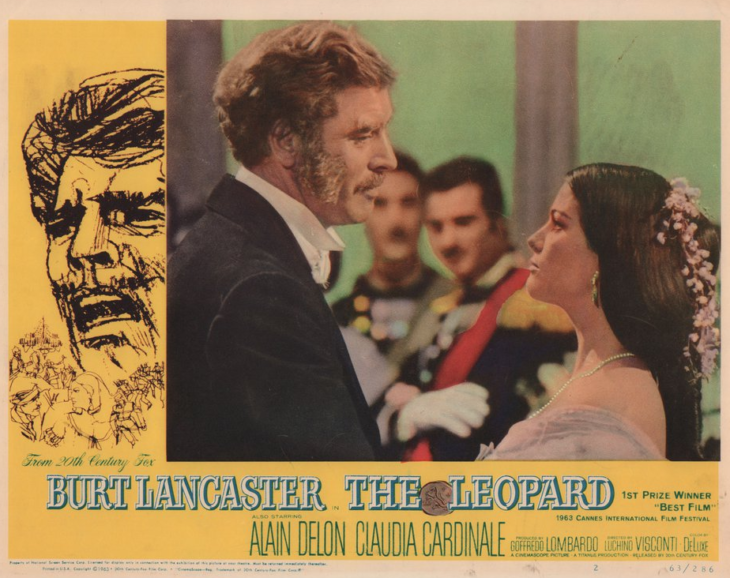
I checked out the financial news network yesterday afternoon, and one commentator was incredulous that people were asking the Fed to step in to help solve the coronavirus epidemic. Of course there have also been eyes rolled in response to calls for central banks to address climate change. I certainly agree with those who are skeptical of central banks getting involved with climate change, and even have some sympathy for skepticism that central banks can do anything about the coronavirus. And yet . . .
This all reminded me of the famous line in The Leopard (which is the title of this post.) Yes, there is no need to change monetary policy in response to the coronavirus, but what does it mean to “not change monetary policy?” I’m pretty sure that the commentator would view a change in interest rates as constituting a change in monetary policy, but frequent readers of this blog know that I strongly dissent from that view. Indeed I’ve devoted much of the past decade to the almost hopeless task of convincing people that interest rates are not monetary policy. Consider two alternative views:
Market monetarist: Neutral monetary policy is stable NGDP growth that leads to on-target inflation. Easy money is excessively fast NGDP growth and tight money is excessively slow NGDP growth.
New Keynesian: Neutral policy is keeping the policy interest rate equal to the equilibrium or neutral interest rate, whereas tight money is a policy rate above the equilibrium rate and easy money is a policy rate below the equilibrium rate.
Under either of these two criteria (which are actually pretty similar), there is absolutely no reason to change monetary policy in response to the coronavirus. NGDP growth should continue at about 4%/year and the target interest rate should be adjusted daily to move in tandem with the equilibrium rate.
So why the mysterious Zen-like title of the post, which sounds sort of like a kōan? Because for monetary policy to stay the same, almost everything else must change. The money supply must change, the interest rate must change, and the exchange rate must change.
If you think I’m being too cute here, recall that (prior to 2008) holding the money supply constant generally required a change in the interest rate, and vice versa. So it’s not necessary to be a market monetarist to buy into the claim in the title of the post.
The Leopard was also made into an excellent film, directed by Visconti:


READER COMMENTS
MarkW
Feb 25 2020 at 7:30am
Should we still be targeting the same 4% NGDP growth during a temporary period of sharp contraction when much economic activity is halted due to a virus outbreak (e.g. when people stop engaging in tourism, going to school, attending public events, going to stores, riding mass-transit, etc)? Even if you did helicopter drops of money in everybody’s back yard, would they venture out to spend it?
Scott Sumner
Feb 25 2020 at 9:47am
We target NGDP a year in the future, not today. So yes.
Alan Goldhammer
Feb 25 2020 at 8:36am
The big thing to look at will be tourism. From April onward, travel always increases and if virus fears (real or imagined as it’s not clear what the real mortality/morbidity is) dampen travel that will have a significant impact on those economies that are tourism based. We have a trip scheduled for Northern Italy in mid-May and my wife asked yesterday whether this is realistic given some of the responses we’ve seen coming out of Italy. It will be interesting to see the response from the travel insurance industry regarding refunds of ticket costs.
Steve Fritzinger
Feb 25 2020 at 9:33am
Ever try to explain it this way:
My driving policy is to stay 2 to 2.5 seconds behind the car a front of me at all times. To do that speed up and slow down as needed to stay in that window.
If I’m accelerating and decelerating, it doesn’t mean I’ve changed my policy. It means I’m implementing it.
Scott Sumner
Feb 25 2020 at 9:48am
Great analogy.
derek
Feb 26 2020 at 9:15am
Man, my driving policy is to find a cruise control speed that balances not passing trucks in the right lane egregiously slowly and going at a reasonably slow speed that doesn’t completely tank gas mileage. Then, I crank up the tunes and rest my foot!
I guess it’s a little different in the city.
Nick
Mar 3 2020 at 4:47am
does that policy take you to interesting locations?
Thaomas
Feb 25 2020 at 10:55am
Yes, the policy should not change (if it were proper to begin with). But it is pretty clear that the Fed policy has not been to target NDGP (or to carrying out its dual mandate in some other way) since 2008. What should the Fed DO at the next meeting of the FOMC if it were to change policy and adopt an NGDP target or to begin to carry out it’s dual mandate in some other way?
Mike Sandifer
Feb 26 2020 at 11:38am
isn’t another way of putting it that the Fed should ensure that neutral interest rate remains constant, in the short-run, as wages adjust?
I’m the longer run, money is neutral and the neutral rate can change for secular reasons.
Comments are closed.